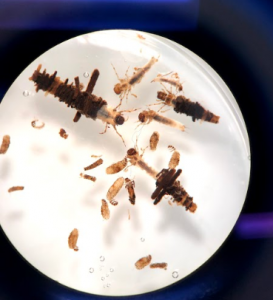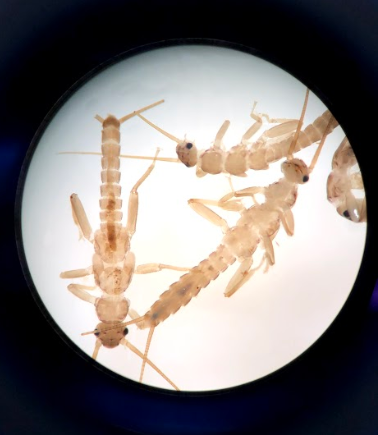
The eruption of Mount St Helens created pyroclastic flows, mudflows, and ash fallout that covered the Pumice Plain in over 100 ft of sterile material. Since then, new watersheds have formed, diverse fauna has colonized MSH streams, and our lab team has been there to document!

The benthic macroinvertebrates of MSH colonize, eat and utilize leaf litter that falls into streams. With the use of leaf litter bags, Undergraduates Angie Froedin-Morgensen and Brandy Ku’ualoha Kamakawiwoole spend hours under a microscope sorting these aquatic insects!

Aquatic insects like Ephemeroptera, Trichoptera, and Plecoptera all play a critical role in the aquatic food webs! Benthic macroinvertebrate communities provide amazing insight as indicators of biological conditions, and communities differ across MSH streams!